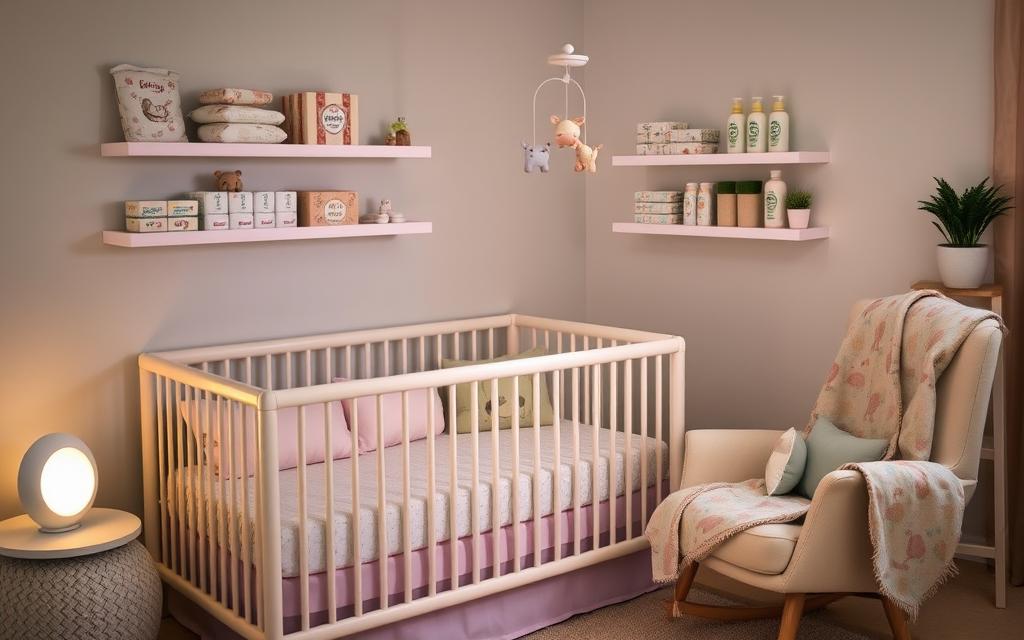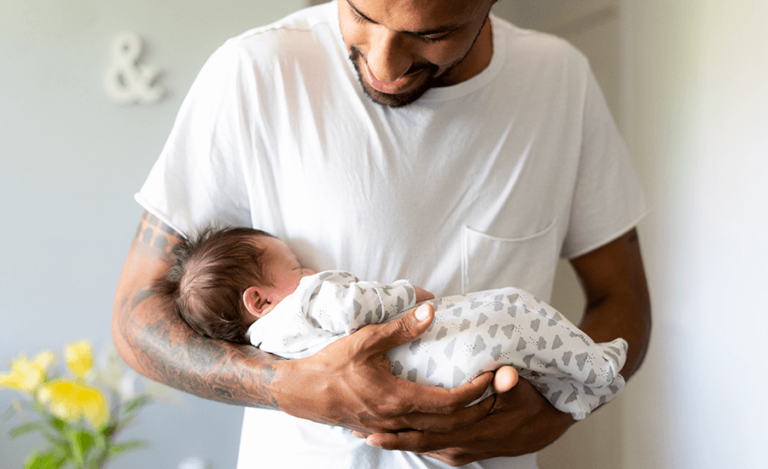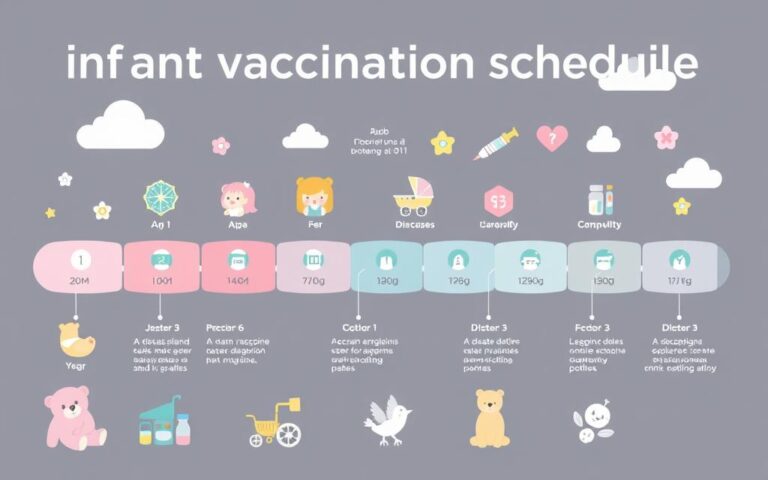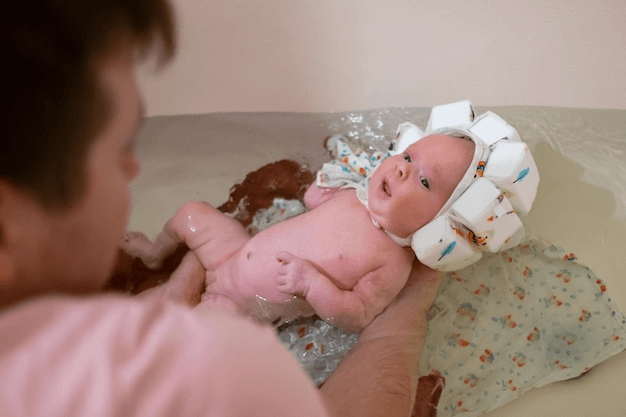Newborn Tips: Navigating the First Weeks with Baby

Welcome to the world of parenthood! The first weeks with your newborn can be overwhelming. But with the right tips, you can navigate this journey with confidence. Caring for a newborn requires attention to detail and a willingness to learn.
As a new parent, it’s essential to understand your baby’s basic needs. This includes feeding, sleeping, hygiene, and safety. By following these tips, you can create a nurturing environment that supports your baby’s growth and development. Whether you’re a first-time parent or not, this guide will provide you with the knowledge and reassurance you need to care for your newborn.
Key Takeaways
- Understanding your baby’s basic needs is key for their growth and development.
- Newborn care tips can help you navigate the first weeks with confidence.
- Creating a nurturing environment is essential for your baby’s health and well-being.
- Following newborn tips can help you establish healthy sleep patterns and feeding routines.
- As a new parent, it’s essential to prioritize your own self-care and seek support when needed.
- Newborn care requires attention to detail and a willingness to learn and adapt.
Essential Newborn Tips for First-Time Parents
Being a first-time parent can feel overwhelming. There’s so much to learn about caring for a newborn. One key newborn baby tip is to build a support network. This includes family, friends, and healthcare professionals.
This network offers emotional support, practical advice, and a sense of community. It’s vital as you start your parenting journey.
Setting up your home for your baby is also important. Make sure the nursery is safe and cozy. You’ll need a crib, changing table, and baby monitor.
Having basic baby care items like diapers, onesies, and burp cloths is also a must. These items will make caring for your baby easier every day.
- Ensure the nursery is well-ventilated and at a comfortable temperature
- Install safety gates at the top and bottom of stairs
- Secure any heavy furniture or appliances to walls to prevent tipping
By following these newborn baby tips and getting advice from trusted sources, you’ll create a safe space for your baby. This will help your baby thrive.
| Essential Item | Description |
|---|---|
| Crib | A safe and comfortable place for your baby to sleep |
| Changing Table | A convenient and hygienic place to change your baby’s diapers |
| Baby Monitor | A device that allows you to keep an eye on your baby from another room |
Understanding Your Newborn’s Basic Needs
As a new parent, knowing your newborn’s basic needs is key. Newborn essentials include recognizing hunger cues, understanding sleep patterns, and creating a safe space. Meeting these needs helps your baby grow strong and sets a good foundation for their future.
Some important parts of caring for a newborn include:
- Feeding: Breast milk or formula gives them the nutrients they need.
- Sleep: Newborns need lots of sleep to rest and recharge.
- Comfort: A cozy and safe place makes your baby feel secure and relaxed.
By focusing on these newborn essentials, you can create a nurturing space. Remember, every baby is different. So, it’s important to be flexible and adjust to your baby’s unique needs.
With time and practice, you’ll get better at meeting your newborn’s basic needs. If you have any worries or questions, don’t hesitate to ask your healthcare provider for help and advice.
Mastering Newborn Feeding Fundamentals
Feeding your newborn is key to their health. Knowing the basics is essential for a good start. Tips for feeding newborns can make you feel more confident. It doesn’t matter if you breastfeed or bottle feed; knowing when they’re hungry is important.
There are different ways to feed a newborn. Breastfeeding is a common choice, with many benefits for both mom and baby. Bottle feeding is another option, great for moms who can’t breastfeed.
Key Considerations for Newborn Feeding
- Frequency: Newborns usually eat every 2-3 hours, all day and night.
- Amount: The amount of milk or formula needed changes based on the baby’s age and weight.
- Hunger cues: Watch for signs like rooting, sucking, and fussing.
By following these tips and paying attention to your baby’s needs, you can create a good feeding routine. Always talk to your healthcare provider if you have any questions or concerns about feeding your newborn.
Recognizing Hunger Cues
It’s important to know when your baby is hungry. Look for signs like rooting, sucking, and fussing. Respond quickly to meet their needs.
| Hunger Cue | Description |
|---|---|
| Rooting | Baby turns head towards breast or bottle |
| Sucking | Baby sucks on finger or pacifier |
| Fussing | Baby becomes restless or fussy |
Establishing Healthy Sleep Patterns
It’s key to help your newborn sleep well for their growth and your peace of mind. As a new parent, focusing on newborn sleep tips is vital. A rested baby is joyful and strong, and a rested parent can care for them better.
Here are some newborn sleep tips to help:
- Make the room dark, quiet, and comfy for sleep.
- Start a bedtime routine with a bath, reading, and cuddles to show it’s sleep time.
- Look for sleep signs like yawning or rubbing eyes to know when it’s time.
By using these newborn sleep tips, you can teach your baby good sleep habits early. Every baby is different, so it might take time to find what works. Be patient and ask your doctor if you’re worried about your baby’s sleep.
| Age | Sleep Needs | Tips |
|---|---|---|
| Newborn (0-3 months) | 16-20 hours | Establish a bedtime routine, watch for sleep cues |
| Infant (4-11 months) | 12-15 hours | Gradually introduce a sleep schedule, encourage self-soothing |
Newborn Hygiene and Care
Proper care for newborns is key to their health and happiness. As a new parent, knowing the basics of hygiene and care is vital. These tips will help you care for your baby with confidence.
Focus on diaper changes, umbilical cord care, bathing, and skin care for newborn hygiene. Simple tips can keep your baby clean and healthy. For instance, changing diapers often prevents irritation and infection.
Diaper Changes and Umbilical Care
Diaper changes might seem hard at first, but you’ll get better with time. Always wash your hands before and after changing diapers. Keep the umbilical cord area clean and dry to avoid infection.

Bathing Your Newborn
Bathing your newborn is a special bonding time. But, it’s important to follow safety tips. Ensure the water is at a comfortable temperature and support your baby’s head and neck.
| Newborn Hygiene Tips | Frequency |
|---|---|
| Diaper changes | Every 2-3 hours |
| Umbilical cord care | After each diaper change |
| Bathing | 2-3 times a week |
By following these tips, you can keep your baby healthy and happy. Always put your baby’s comfort and safety first. If you have concerns, don’t hesitate to ask your healthcare provider.
Recognizing Common Health Concerns
As a new parent, knowing about common health issues in newborns is key. Newborn tips and newborn care tips can help spot problems early. Issues like fever, vomiting, and diarrhea are common.
Here are some key things to watch out for:
- Fever: a temperature above 100.4°F (38°C) can be a sign of infection
- Vomiting: frequent or persistent vomiting can lead to dehydration
- Diarrhea: frequent or watery stools can also lead to dehydration
Following newborn care tips is vital to prevent these issues. Handwashing often, proper feeding, and a clean space can help. If you see these symptoms, talk to your doctor for newborn tips on what to do.
Knowing about these health concerns and following newborn care tips can keep your baby healthy. Always be cautious and talk to your doctor if you’re worried.
“A healthy newborn is a happy newborn. By following these newborn tips and being aware of common health concerns, you can help your baby thrive.”
Creating a Safe Sleep Environment
As a new parent, setting up a safe sleep space for your newborn is key. You need to follow safe sleep rules and arrange the nursery carefully. Experts say a firm, flat mattress and a snug sheet can prevent SIDS and other dangers.
When you’re setting up the nursery, remember these new parent tips: keep the room cozy but not too hot, and make sure it’s well-ventilated. A dark, quiet room helps your baby sleep better. Also, keep the crib away from windows and curtains to avoid hazards.
- Place your baby on their back to sleep
- Use a firm, flat mattress and a tight-fitting sheet
- Keep the crib free of soft toys, blankets, and pillows
- Avoid overheating and ensure good ventilation
By following these tips and making a safe sleep area, you can ensure your baby sleeps safely. This reduces the risk of SIDS and other sleep dangers.
| Safe Sleep Guidelines | Benefits |
|---|---|
| Place baby on their back to sleep | Reduces risk of SIDS |
| Use a firm, flat mattress and tight-fitting sheet | Prevents suffocation and entrapment |
| Keep crib free of soft toys, blankets, and pillows | Reduces risk of suffocation and SIDS |
Bonding With Your Newborn
Bonding with your newborn is a special experience that starts a lifelong connection. As a new parent, knowing how to bond with your child is key. Skin-to-skin contact is a great way to bond, helping your baby’s body and heart rate stay calm.
Early communication is also key in bonding. This can be done through eye contact, touch, and responsive parenting. By responding to your baby’s sounds and movements, you build trust and security. Here are some tips for effective communication:
- Use a soothing voice to calm your newborn
- Make eye contact during feeding and playtime
- Respond to your newborn’s cries and gestures
By following these tips, you can strengthen your bond with your child. Remember, every child is different. Be patient, flexible, and responsive to your baby’s needs. This will help you build a strong and lasting relationship.
As you start your parenting journey, bonding with your newborn takes time and effort. With the right mindset and support, you can overcome any challenges. This will help you create a lifelong connection with your child.
| Newborn Baby Tips | Newborn Parenting Advice |
|---|---|
| Skin-to-skin contact | Respond to your newborn’s cries and gestures |
| Early communication | Use a soothing voice to calm your newborn |
Self-Care for New Parents
As a new parent, taking care of yourself is key. It helps keep you physically and mentally strong. You can do this by taking breaks, asking for help, and being kind to yourself. These new parent tips will help you enjoy this new chapter in your life.
Here are some ways to take care of yourself:
- Taking a warm bath or shower to relax
- Reading a book or listening to music to unwind
- Going for a walk or engaging in light exercise to boost mood
- Seeking support from family and friends or joining a support group
Also, newborn care tips can make caring for your baby easier. By focusing on self-care and getting help when you need it, you’ll be the best parent you can be. Remember, taking care of yourself is vital to being a happy and effective parent.
By prioritizing self-care and seeking support, new parents can navigate the challenges of parenthood with confidence and joy.
When to Contact Your Healthcare Provider
As a new parent, knowing when to reach out to your healthcare provider is key. They are a great source for any questions or worries about your baby’s health.
It’s important to tell normal from concerning symptoms in your newborn. Symptoms like spitting up or a rash are usually okay and can be handled with simple care tips. But, signs like trouble breathing or a high fever are serious and need quick action.
Normal vs. Concerning Symptoms
Here are some examples of normal and concerning symptoms in newborns:
- Normal symptoms: spitting up, having a rash, being fussy
- Concerning symptoms: difficulty breathing, high fever, lethargy
Emergency Situations
In emergency situations, it’s vital to call your healthcare provider right away. Some examples include:
- Difficulty breathing or rapid breathing
- High fever or low body temperature
- Lethargy or unresponsiveness
By following these tips, you can help keep your baby healthy and happy. Always reach out to your healthcare provider if you have any questions or concerns about your baby’s health.
| Symptom | Normal or Concerning | Action |
|---|---|---|
| Spitting up | Normal | Try burping or changing feeding position |
| Difficulty breathing | Concerning | Contact healthcare provider immediately |
Conclusion: Embracing Your Journey into Parenthood
Starting your journey into parenthood is a big step. It can be both exciting and challenging. But with the right newborn parenting advice and support, you’ll feel more confident. Every child is different, so what works for one family might not work for another.
Trust your instincts and lean on your support system. Don’t be afraid to ask for help from your healthcare providers when you need it.
This article has given you a detailed guide to newborn baby tips. You’ll learn about setting up healthy sleep patterns and spotting common health issues. Take time to go over the key points and adjust them to fit your family’s needs.
Being a parent comes with its ups and downs, like sleepless nights and endless diaper changes. But also, there are moments of deep connection, milestones, and memories to cherish. Parenthood is a journey that changes you, and you’re ready to make the most of it.
Wishing you all the best as you start this amazing adventure!






